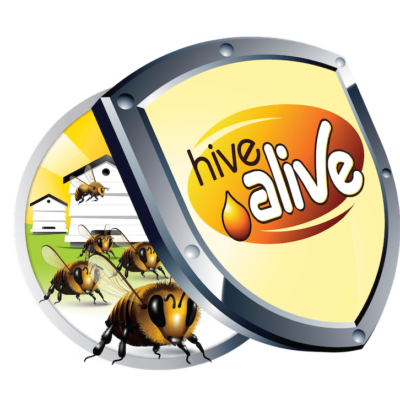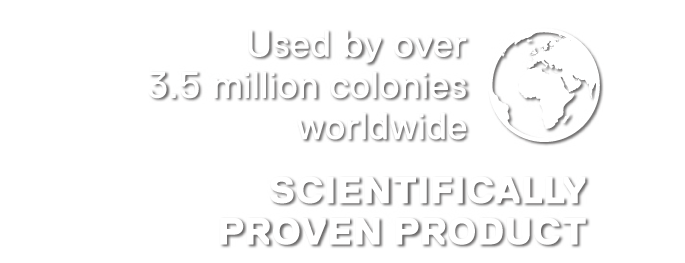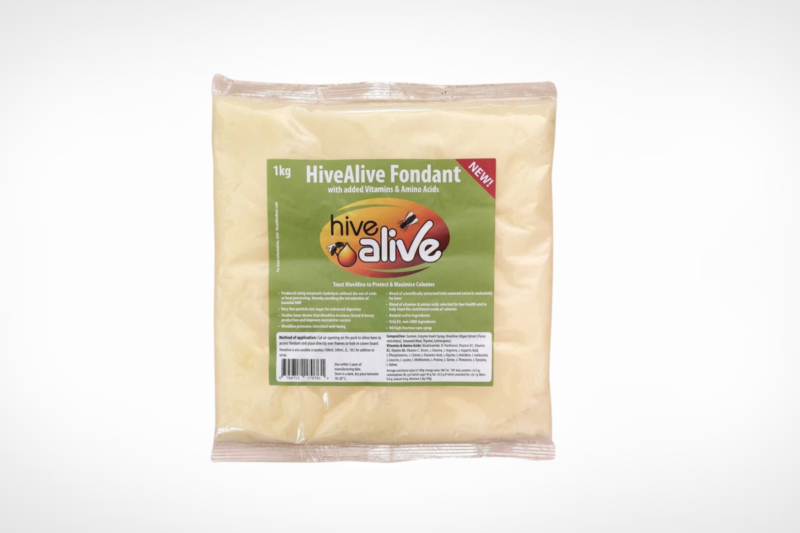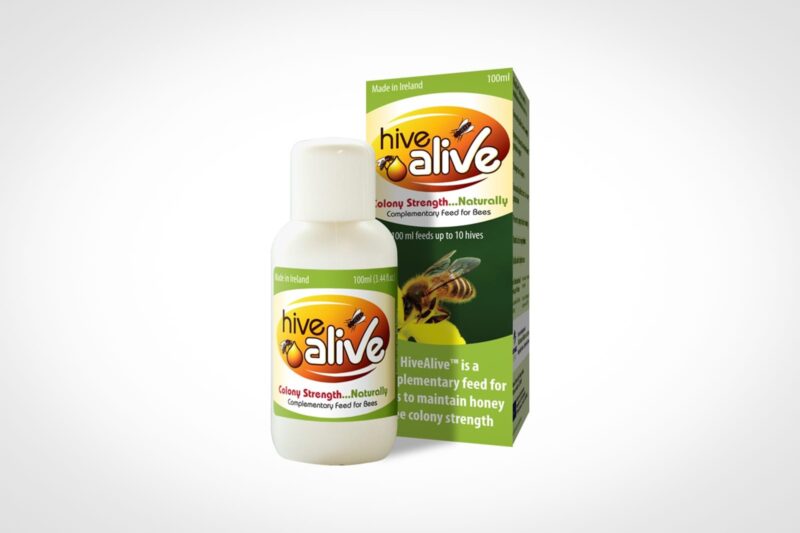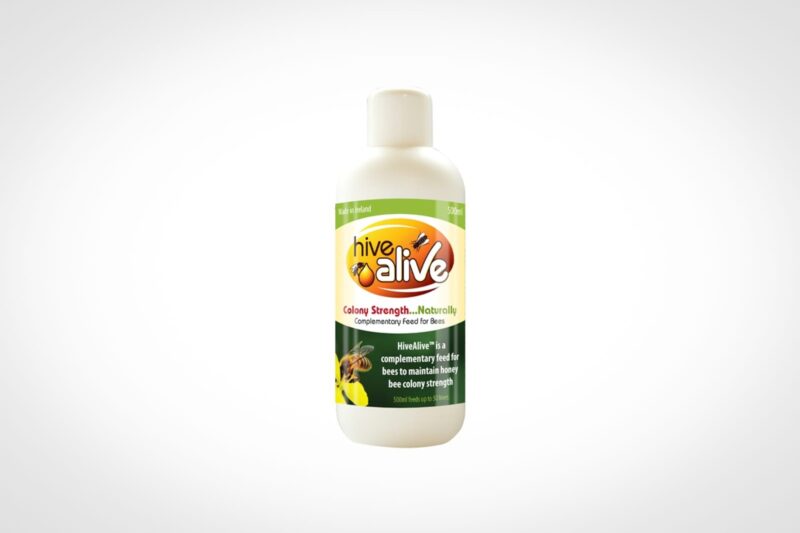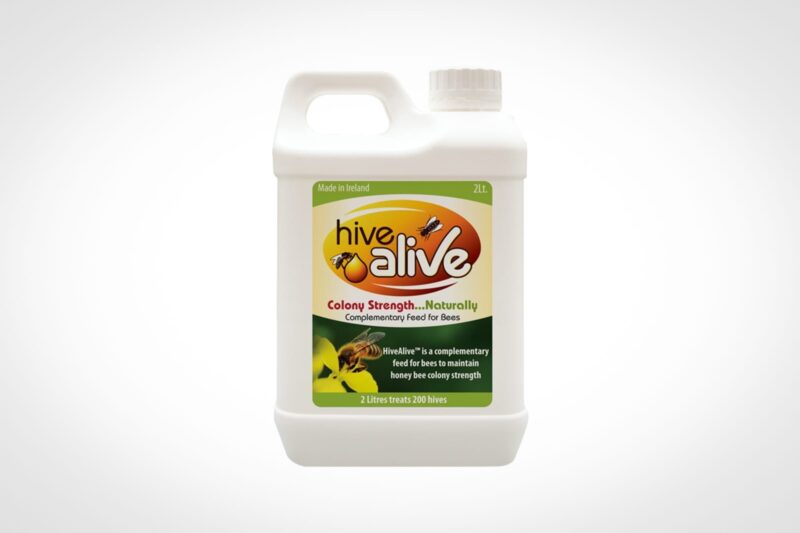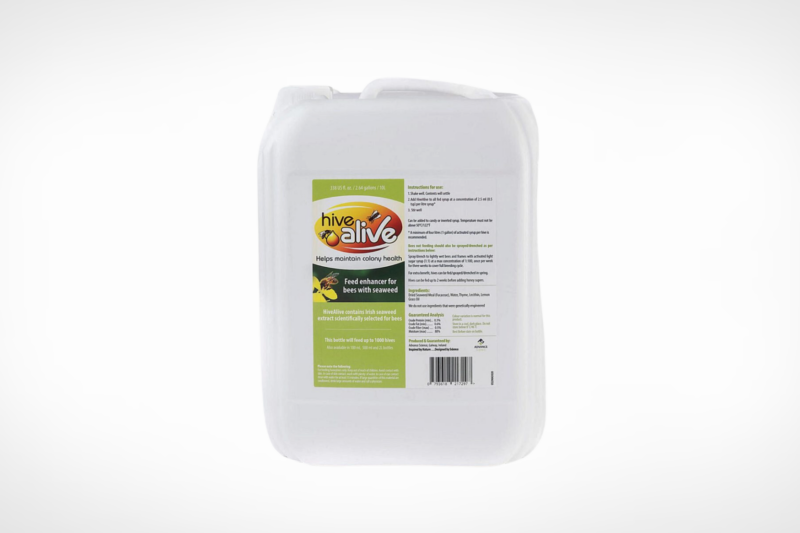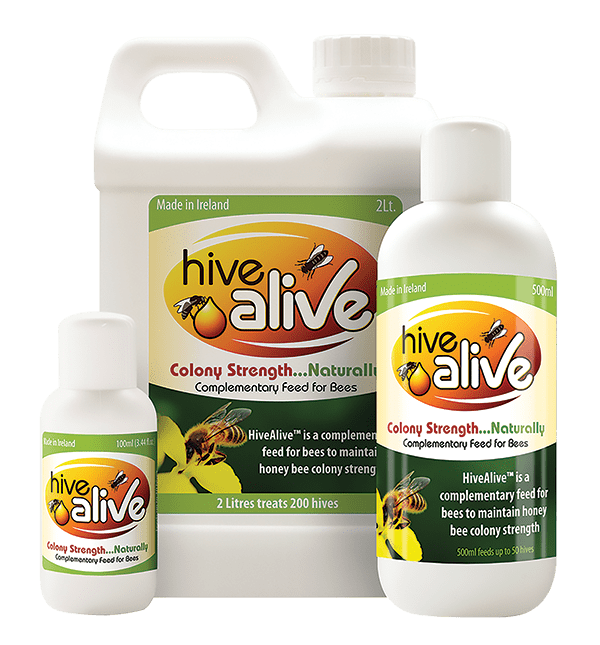
HiveAlive is the only product to contain unique Irish seaweed extracts scientifically selected for honeybees.
The reason seaweeds are so beneficial is due to their anti-microbial, anti-viral, anti-fungal, immune boosting properties and prebiotic activity as well as high levels of vitamins and minerals. 3,4,5,6
The seaweeds found in HiveAlive are harvested from the clean, pure waters of the Atlantic Ocean off the coast of the west of Ireland. These seaweeds are then carefully processed to extract all the bioactives to ensure maximum efficacy.
3 Ingredients To Help Your Bees:
Seaweeds – Using a patented process, a unique combination of seaweed extracts, some found only on the coast of Ireland, was developed by experts in nutrition and marine biology.
Thymol – HiveAlive uses a unique emulsification process to ensure it blends easily into sugar syrup and does not cause separation or recrystallisation.
Lemongrass – Calms the bees and makes the sugar syrup attractive to them.
Healthy colonies, at a great price!
Healthy Seaweeds for Healthy Bees
Whilst it is unusual for bees to be fed seaweeds, the practice of adding seaweed to other animal feed is long established. Seaweeds are fed to animals for a plethora of benefits. 3,4,5,6
Productivity
General Health
Gut Health
Immune Function
Nutrition
Scientifically Proven
HiveAlive trial results show 1,2
+89% increase in colony population
+40% increase in honey production
-15% reduction in overwinter losses
+39% increase in brood production
Healthy colonies
Intestinal well-being
Proven Long-term Benefits
You can trust in HiveAlive
Results from long-term field trials, Greece 2012-2014 show:
89% increase in colony population
15% reduction in overwinter mortality
Reduction in Nosema spore counts
Results published in the Journal of Apicultural Research. 5
Trial:
Assess effects of feeding HiveAlive on colony population and Nosema spore counts.
Location
Greece
Carried out by:
Fani Hatjina, Hellenic Institute of Apiculture
No. of hives:
20 control and 20 treated
Feeding regime:
All hives fed 4L syrup in spring and autumn, treatment group had 2.5ml of HiveAlive added per litre of syrup
Results from field trials, France 2014-2015 show:
20% increase in colony population
Increase in honey production
30% increase in amount of brood
Trial:
Assess effects of feeding HiveAlive on colonies
Location
France
Carried out by:
Véto-pharma, France
No. of hives:
18 control and 17 treated
Feeding regime:
All hives fed 4L syrup in spring and autumn, treatment group had 2.5ml of HiveAlive added per L of syrup.
In-vitro tests 2016 show:
Inhibits the growth of American Foulbrood (Paenibacillus larvae)
Inhibits the growth of Chalkbrood (Ascosphaera apis)
Client Testimonial
“The population increased rapidly and honey production increased. On average production per hive is approx 25% more and the hives are more consistent in production. To summarise we would recommend using HiveAlive to Beekeepers because honey production per hive far exceeds the cost of the product.”
– Donald Tweeddale, commercial beekeeper (20,000 hives)
New Zealand
References
- Charistos, L, Parashos, N & Hatjina, F (2015) Long term effects of a food supplement HiveAliveTM on honey bee colony strength and Nosema ceranae spore counts, Journal of Apicultural Research.
- Increase in honeybee populations with continued use of HiveAlive, Results from long-term field trials, France 2014-2015, Trial conducted by Veto-Pharma, France
- Fleurence, J. (1999). Seaweed proteins: biochemical, nutritional aspects and potential uses.
- Kovaˇc, D (2013) Algae in food and feed. Journal of the Institute of Food Technology in Novi Sad
- Løvstad Holdt & Stefan Kraan, Bioactive compounds in seaweed…
- Mayer, A., & Hamann, M. (2004). Marine Pharmacology in 2000: Marine compounds with antibacterial, anticoagulant, antifungal…
How to use HiveAlive
HiveAlive is easily added to syrup at a rate of 2.5ml per litre of syrup.

Autumn
To minimise winter losses, build stronger colonies and improve intestinal wellbeing; use every autumn.

Spring
To maximise colony buildup, prepare for migration and improve intestinal wellbeing; use every spring.


